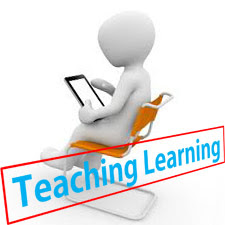Introduction
Discussion
Parents either educated or
illiterate both are not comfortable since their children are not as theyexpect. It is normal however many parents do not take it as it is supposed to
be. To be convinced with the idea mentioned here we have to take reference from
the developmental psychology. The child on the basis of his developmental
stages such as infancy, early childhood, late childhood and puberty obviously
understand and perform differently in comparison to every other stage.
Lets discuss the features of early childhood for an example which goes from [two to six years] to understand the
child better are listed as follows:
a. Early
Childhood is the age of emotional
regulation and attachment
The child can demonstrate the emotion as per the
relevant context. It indicates that the child becomes happy and sad and
frighten on the correct situation. S/he also clearly makes the right
attachment.
b. Early Childhood is the age of Language development
The children have the full command of their
mother tongue. Many scholar who do not have the good understanding about
language and linguistics are not easily ready to accept it thinking that how a
child at the age of two can master the vast and complex nature of language. But
the reality is as per the knowledge and skills actually requires for basic
communication of everyday use is handled easily. And this is called the mastery
over the language. It is not the requirement of ability that enables someone to
edit the national daily newspaper.
c. Early Childhood is the age of Cognitive development
The cognitive development refers to the mental
development. The child can think and response according to the stimulus. The
child starts to think, analyze and become able to make conclusion on the basis
of here and now principle.
d. Early Childhood is the age of Motor skills
Children naturally makes a
beautiful combination of motor skills. Motor skills refers to the activities
for example running, catching and holding something, making arrangement of
playing objects. The combination of eye-hand and leg is maintained.
Similarly, the children of
early childhood are understood as follows:
ii. They learn and start to practice basic health
literacy in the sense that they urine and do poo to the appropriate place and
many other activities and behaviors are performed at this stage.
iii. It is the drastic change in the self
control and self discipline in comparison to infancy period. For example if
your child is demanding a toy doll with you, but you are not able to bring it
right now and give it to the child then you can convince easily by telling the
reason.
iv. Children can make good decisions about risky
situations
v. They make a habit about their eating
timetable.
vi. They can establish the healthy relationship by
negotiating conflict with the family member friends.
All these features make this stage of child
development is important. This is foundational age in the sense that the
symptoms and development at this age are crucial and goes for long lasting in
the age. Many scholars highlight that more that 80% development is already
finalized during this stage.
Sometimes Certain children experience more
illnesses than their peers. There might be many causes such as poverty, stress
and suffering in the family, being in daycare, or being from a large family member
correlated with increased risk of illness in the preschooler age group.
Thus, the
parents before complaining about their child have to understand all the stages
of human development and growth. The Early Childhood is only one example among
many other stages of development.
Conclusion
The children perform the behaviors as per their age and development. We need to learn the features and development of the children according to their age. However, to be worried about our children is not illogical. The parents should learn the features and changes of physical, mental and psychomotor development. Your child at the age of 5 often remains busy with toys and dolls but at the age of 12 s/he spends his/her lots of time with friends. The important thing is parents should not take it otherwise.
References
1. Child Development by Elizabeth Horlock
Related Article









0 Comments